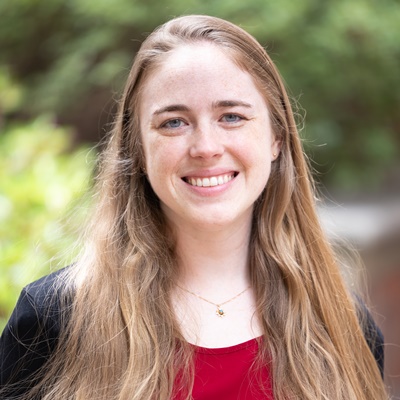Barriers to Strategic Success in US Special Operations Forces Counterterrorism

Speaker(s): Lindquist, K. (NSI); Koven, B. (Deloitte Consulting & Joint Special Operations University)
Date: 10 February 2022
Speaker Session Summary
SMA hosted a speaker session with Dr. Katy A. Lindquist (Principal Research Scientist, NSI) and Dr. Barnett S. Koven (Data Science Manager, Deloitte Consulting; Adjunct Faculty Member, Joint Special Operations University) as part of its SMA SOCOM Speaker Series.
Despite high levels of counterterrorism (CT) spending by the US—mostly on powerful kinetic capabilities—the level of global terrorism has not decreased. Furthermore, the United States’ main national security concern has shifted from CT to interstate great power competition. Dr. Lindquist commented that there is a narrow band for strategic success relating to CT which includes overlap between: a) US grand strategy, b) coordination with partner states, c) tactical alignment with special operations forces (SOF), and d) interagency cooperation. Overall, maintaining both a coherent and clear grand strategy and CT strategy are key to achieving both military and non-military US objectives. Dr. Koven asserted that the US has not had a coherent approach to CT since it became the US’s main security concern following the collapse of the Soviet Union. Furthermore, each new presidential administration has taken its own unique approach to CT strategy: adding to the overall US strategic CT incoherency. He likened the current CT strategy to a game of whack-a-mole.
Terrorism itself occurs when a radical group acquires a level of operational capability that matches their level of motivation: usually political motivation. Past CT operations have relied too heavily on counterinsurgency being led by SOF; however, a population centric approach—designed to win the hearts and minds of individuals—also has clear drawbacks. One such drawback is that not all violent extremists can be de-radicalized. Several other barriers to effective CT include domestic barriers such as, organizational mission biases, overly bureaucratic organizational structures, a lack of incentives for sharing information and resources, and ad hoc funding mechanisms. Ad hoc funding mechanisms are especially problematic and lead to strong interagency competition for DOD funding. While these barriers to CT exist, each organization also has resources and skilled employment unique to only themselves. Also, cooperation with overseas partners experiences the same barriers that interagency collaboration does: including the tendency for actors to focus only on a kinetic approach. Dr. Koven concluded the presentation by recommending that the DOD and SOCOM focus on a) disruption-based CT, b) fine-tuning interagency processes, c) increasing international collaboration, and d) identifying the appropriate metrics to measure CT successes and failures.
Dr. Katie A. Lindquist and Dr. Barnett S. Koven Biographies
Katy A. Lindquist, PhD is a Principal Research Scientist at NSI, Inc. She has a background in politicalscientist with broad and diverse methodological training in quantitative and qualitativeapproaches to social science. Her substantive expertise is in national and international security,which she uses to support DOD’s Strategic Multi-later Assessment work. Prior to joining the NSIteam, she was a principal investigator and faculty researcher at START (the National Consortiumfor the Study of Terrorism and Responses to Terrorism) at the University of Maryland. As thefounder and principal of KAL Insights, LLC, she has also previously served as a consultant for public and private sector clients. Her doctorate in Political Science is from the University of Chicago, where she studied international relations and comparative politics, and her A.B. in Governmentis from Dartmouth College.
---
Barnett S. Koven, PhD is a national security specialist and data scientist with a decade's experience in counterterrorism, counterinsurgency and strategic competition. He has deep expertise in leading analytics teams applying quantitative and qualitative approaches to national security combining research design, inferential statistics, machine learning and applied AI, surveyexperimental research, and data visualization. Koven has received research funding from the U.S. Departments of Defense (DOD), Homeland Security (DHS), State, Justice, and Energy, as well as from the Horowitz Foundation for Social Policy, George Washington University (GWU) and University of Maryland (UMD). He received his Ph.D., M.Phil. and M.A. in Political Science, as well as a B.A. in International Affairs and Latin American and Hemispheric Studies from GWU. Koven also holds a Certificate in Conflict Analysis from the United States Institute of Peace and a Certificate in Advanced Security in the Field from the United Nations System Staff College. Finally, he is the author (with Dr. Katy Lindquist) of the Joint Special Operations University (JSOU) Pressbook, Barriers to Special Operations Forces-Led Counterterrorism Effectiveness. Koven is a Manger at Deloitte working as a data scientist in the firm’s federal sector strategy &analytics practice. He is also an Adjunct Faculty Member at JSOU. Koven previously served as the Training Director, Near-peer Competition Lead Researcher, and Counterterrorism LeadResearcher at UMD’s National Consortium for the Study of Terrorism and Responses to Terrorism(START), a DHS Emeritus Center of Excellence. He also founded and served as the CEO of BSK Consulting, LLC, a boutique consultancy specializing in practitioner education and mixedmethods (quantitative and qualitative) research in support of national security practitioners andpolicy-makers. Additionally, Koven was a Principal Policy Analyst at Alion Science and TechnologyCorporation, and a Quantitative Social Scientist at Performance Systems, LLC. He also heldacademic appointments at GWU, UMD, Florida International University, Universidad de SanMartín de Porres (in Lima, Peru), the U.S. Air Force Special Operations School, and the ModernWar Institute at West Point.

